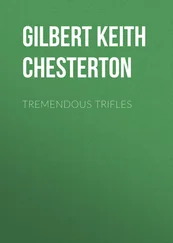Gilbert Chesterton - Manalive
Здесь есть возможность читать онлайн «Gilbert Chesterton - Manalive» весь текст электронной книги совершенно бесплатно (целиком полную версию без сокращений). В некоторых случаях можно слушать аудио, скачать через торрент в формате fb2 и присутствует краткое содержание. Год выпуска: 1912, Издательство: Thomas Nelson and Sons, Жанр: Классическая проза, на английском языке. Описание произведения, (предисловие) а так же отзывы посетителей доступны на портале библиотеки ЛибКат.
- Название:Manalive
- Автор:
- Издательство:Thomas Nelson and Sons
- Жанр:
- Год:1912
- ISBN:нет данных
- Рейтинг книги:3 / 5. Голосов: 1
-
Избранное:Добавить в избранное
- Отзывы:
-
Ваша оценка:
- 60
- 1
- 2
- 3
- 4
- 5
Manalive: краткое содержание, описание и аннотация
Предлагаем к чтению аннотацию, описание, краткое содержание или предисловие (зависит от того, что написал сам автор книги «Manalive»). Если вы не нашли необходимую информацию о книге — напишите в комментариях, мы постараемся отыскать её.
Manalive — читать онлайн бесплатно полную книгу (весь текст) целиком
Ниже представлен текст книги, разбитый по страницам. Система сохранения места последней прочитанной страницы, позволяет с удобством читать онлайн бесплатно книгу «Manalive», без необходимости каждый раз заново искать на чём Вы остановились. Поставьте закладку, и сможете в любой момент перейти на страницу, на которой закончили чтение.
Интервал:
Закладка:
When the singular Smith, astride of a chimney-pot, learnt that Gould was not following, his infantile officiousness and good nature forced him to dive back into the attic to comfort or persuade; and Inglewood and Moon were left alone on the long gray-green ridge of the slate roof, with their feet against gutters and their backs against chimney-pots, looking agnostically at each other. Their first feeling was that they had come out into eternity, and that eternity was very like topsy-turvydom. One definition occurred to both of them–that he had come out into the light of that lucid and radiant ignorance in which all beliefs had begun. The sky above them was full of mythology. Heaven seemed deep enough to hold all the gods. The round of the ether turned from green to yellow gradually like a great unripe fruit. All around the sunken sun it was like a lemon; round all the east it was a sort of golden green, more suggestive of a greengage; but the whole had still he emptiness of daylight and none of the secrecy of dusk. Tumbled here and there across this gold and pale green were shards and shattered masses of inky purple cloud, which seemed falling towards the earth in every kind of colossal perspective. One of them really had the character of some many-mitred, many-bearded, many-winged Assyrian image, huge head downwards, hurled out of heaven– a sort of false Jehovah, who was perhaps Satan. All the other clouds had preposterous pinnacled shapes, as if the god’s palaces had been flung after him.
And yet, while the empty heaven was full of silent catastrophe, the height of human buildings above which they sat held here and there a tiny trivial noise that was the exact antithesis; and they heard some six streets below a newsboy calling, and a bell bidding to chapel. They could also hear talk out of the garden below; and realized that the irrepressible Smith must have followed Gould downstairs, for his eager and pleading accents could be heard, followed by the half-humourous protests of Miss Duke and the full and very youthful laughter of Rosamund Hunt. The air had that cold kindness that comes after a storm. Michael Moon drank it in with as serious a relish as he had drunk the little bottle of cheap claret, which he had emptied almost at a draught. Inglewood went on eating ginger very slowly and with a solemnity unfathomable as the sky above him. There was still enough stir in the freshness of the atmosphere to make them almost fancy they could smell the garden soil and the last roses of autumn. Suddenly there came from the darkening room a silvery ping and pong which told them that Rosamund had brought out the long-neglected mandoline. After the first few notes there was more of the distant bell-like laughter.
“Inglewood,” said Michael Moon, “have you ever heard that I am a blackguard?”
“I haven’t heard it, and I don’t believe it,” answered Inglewood, after an odd pause. “But I have heard you were–what they call rather wild.”
“If you have heard that I am wild, you can contradict the rumour,” said Moon, with an extraordinary calm; “I am tame. I am quite tame; I am about the tamest beast that crawls. I drink too much of the same kind of whisky at the same time every night. I even drink about the same amount too much. I go to the same number of public-houses. I meet the same damned women with mauve faces. I hear the same number of dirty stories– generally the same dirty stories. You may assure my friends, Inglewood, that you see before you a person whom civilization has thoroughly tamed.”
Arthur Inglewood was staring with feelings that made him nearly fall off the roof, for indeed the Irishman’s face, always sinister, was now almost demoniacal.
“Christ confound it!” cried out Moon, suddenly clutching the empty claret bottle, “this is about the thinnest and filthiest wine I ever uncorked, and it’s the only drink I have really enjoyed for nine years. I was never wild until just ten minutes ago.” And he sent the bottle whizzing, a wheel of glass, far away beyond the garden into the road, where, in the profound evening silence, they could even hear it break and part upon the stones.
“Moon,” said Arthur Inglewood, rather huskily, “you mustn’t be so bitter about it. Everyone has to take the world as he finds it; of course one often finds it a bit dull–”
“That fellow doesn’t,” said Michael decisively; “I mean that fellow Smith. I have a fancy there’s some method in his madness. It looks as if he could turn into a sort of wonderland any minute by taking one step out of the plain road. Who would have thought of that trapdoor? Who would have thought that this cursed colonial claret could taste quite nice among the chimney-pots? Perhaps that is the real key of fairyland. Perhaps Nosey Gould’s beastly little Empire Cigarettes ought only to be smoked on stilts, or something of that sort. Perhaps Mrs. Duke’s cold leg of mutton would seem quite appetizing at the top of a tree. Perhaps even my damned, dirty, monotonous drizzle of Old Bill Whisky–”
“Don’t be so rough on yourself,” said Inglewood, in serious distress. “The dullness isn’t your fault or the whisky’s. Fellows who don’t– fellows like me I mean–have just the same feeling that it’s all rather flat and a failure. But the world’s made like that; it’s all survival. Some people are made to get on, like Warner; and some people are made to stick quiet, like me. You can’t help your temperament. I know you’re much cleverer than I am; but you can’t help having all the loose ways of a poor literary chap, and I can’t help having all the doubts and helplessness of a small scientific chap, any more than a fish can help floating or a fern can help curling up. Humanity, as Warner said so well in that lecture, really consists of quite different tribes of animals all disguised as men.”
In the dim garden below the buzz of talk was suddenly broken by Miss Hunt’s musical instrument banging with the abruptness of artillery into a vulgar but spirited tune.
Rosamund’s voice came up rich and strong in the words of some fatuous, fashionable coon song–
“Darkies sing a song on the old plantation,
Sing it as we sang it in days long since gone by.”
Inglewood’s brown eyes softened and saddened still more as he continued his monologue of resignation to such a rollicking and romantic tune. But the blue eyes of Michael Moon brightened and hardened with a light that Inglewood did not understand. Many centuries, and many villages and valleys, would have been happier if Inglewood or Inglewood’s countrymen had ever understood that light, or guessed at the first blink that it was the battle star of Ireland.
“Nothing can ever alter it; it’s in the wheels of the universe,” went on Inglewood, in a low voice: “some men are weak and some strong, and the only thing we can do is to know that we are weak. I have been in love lots of times, but I could not do anything, for I remembered my own fickleness. I have formed opinions, but I haven’t the cheek to push them, because I’ve so often changed them. That’s the upshot, old fellow. We can’t trust ourselves– and we can’t help it.”
Michael had risen to his feet, and stood poised in a perilous position at the end of the roof, like some dark statue hung above its gable. Behind him, huge clouds of an almost impossible purple turned slowly topsy-turvy in the silent anarchy of heaven. Their gyration made the dark figure seem yet dizzier.
“Let us...” he said, and was suddenly silent.
“Let us what?” asked Arthur Inglewood, rising equally quick though somewhat more cautiously, for his friend seemed to find some difficulty in speech.
“Let us go and do some of these things we can’t do,” said Michael.
At the same moment there burst out of the trapdoor below them the cockatoo hair and flushed face of Innocent Smith, calling to them that they must come down as the “concert” was in full swing, and Mr. Moses Gould was about to recite “Young Lochinvar.”
Читать дальшеИнтервал:
Закладка:
Похожие книги на «Manalive»
Представляем Вашему вниманию похожие книги на «Manalive» списком для выбора. Мы отобрали схожую по названию и смыслу литературу в надежде предоставить читателям больше вариантов отыскать новые, интересные, ещё непрочитанные произведения.
Обсуждение, отзывы о книге «Manalive» и просто собственные мнения читателей. Оставьте ваши комментарии, напишите, что Вы думаете о произведении, его смысле или главных героях. Укажите что конкретно понравилось, а что нет, и почему Вы так считаете.









